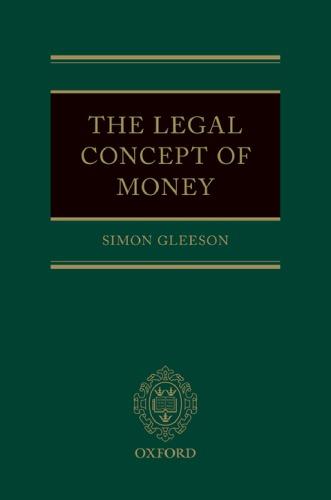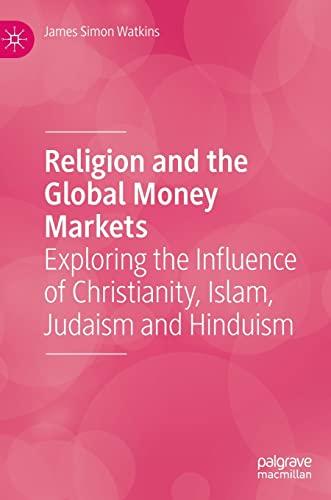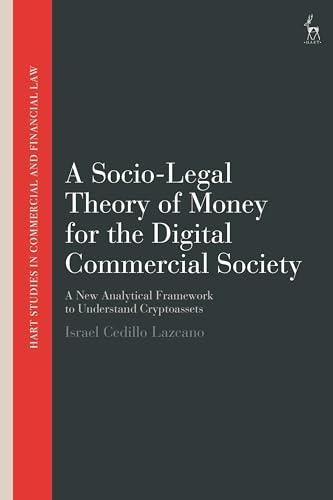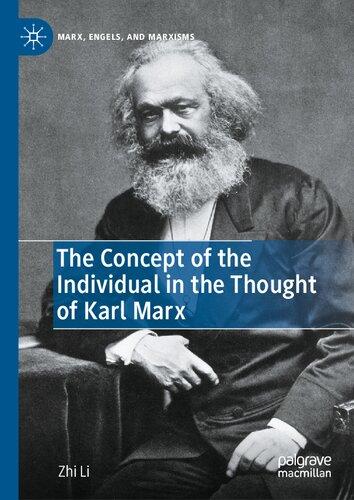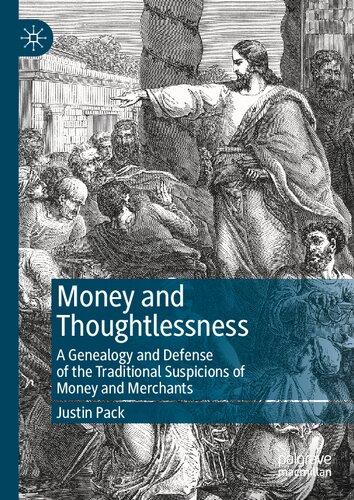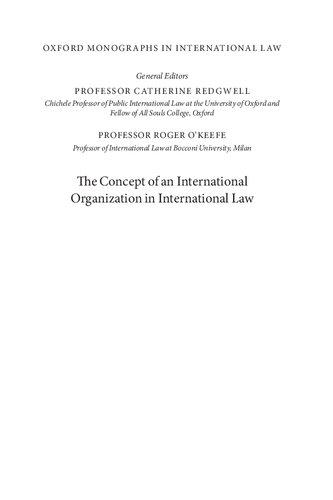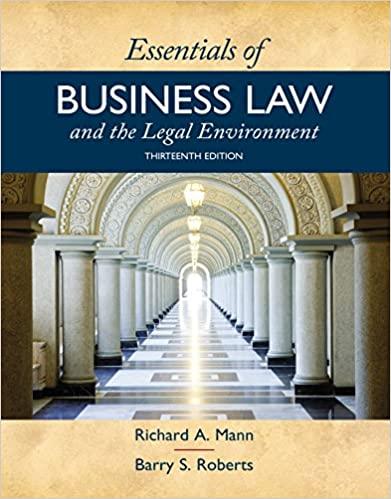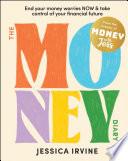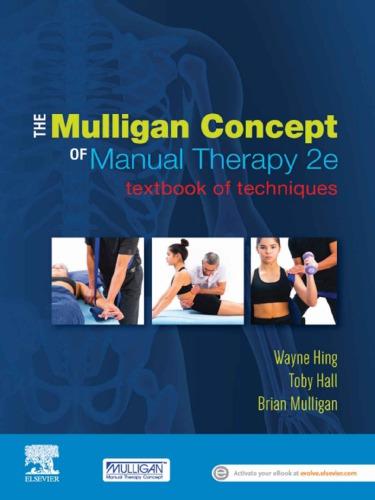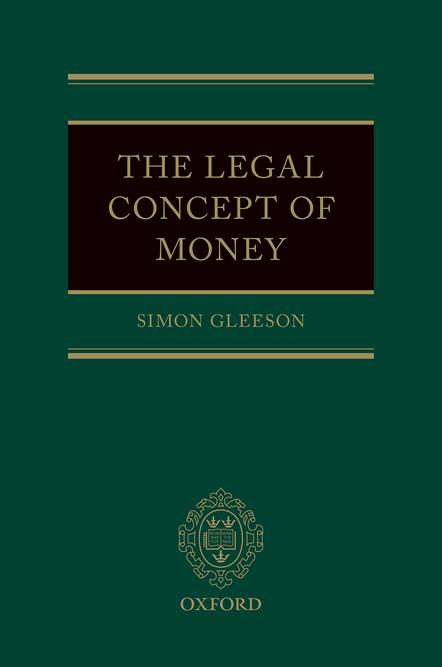Table of Cases
A Ltd v B Bank [1997] 6 Bank LR 85 CA (Civ Div)
Adelaide Electric Supply Company Ltd v Prudential Assurance Company Ltd [1934] AC 122
Aectra Refining and Marketing Inc� v Exmar NV [1994] 1 WLR 1634
Aldridge v Johnson (1857) 7 E & B 885
Alloway v Phillips [1980] 1 WLR 888, CA
Arkin v Borchard Lines Ltd [2005] EWCA Civ 665
Armstrong DLW GmbH v Winnington Networks Ltd [2012] EWHC 10 (Ch), [2013] Ch 156
Asset Land v FCA See FSA v Asset Land Investment Inc
Attorney General of Hong Kong v Nai-Keung [1987] 1 WLR 1339, PC 9 09
Axel Johnson Petroleum AB v MG Mineral Group AG [1992] 1 WLR
Baden v Société Générale pour Favoriser le Developpement du Commerce et de l’Industrie de France SA [1993] 1 WLR 509
Bagshaw v Playn (1595) Cro� Eliz� 536
of
Blumberg v Life Interests and Reversionary Securities Corp [1897] 1 Ch 171, aff [1898]
& Nut Co (Tipton) Ltd v Rowlands, Nicholls & Co [1964] 2 QB 10
Bonython v Commonwealth of Australia [1950] AC 201
Bordin v St� Mary’s NHS Trust [2000] Lloyds Rep Med 287
Boys, Re (1870) LR 10 Eq� 467
British American and Continental Bank, Re Lisser and Rosenkranz claim, Re [1923] 1 Ch 276
British Eagle International Air Lines Ltd v Cie Nationale Air France [1975] 1 WLR 758
7�68, 9�105
3�21
Broderick v Centaur Tipping Services (2006) 103(34) LSG 32 10 25
Burdett v Willett (1708) 2 Vern 638 7 51
Buttes Oil & Gas Co v Hammer (No 3) [1982] AC 888 9 23
Camdex International Ltd v Bank of Zambia (No 3) [1997] EWCA Civ 798; [1997] 6 Bank LR 44 CA (Civ Div) 7 79, 7 80, 9 105
Canmer International Inc v UK Mutual S S Assurance Association (Bermuda) Ltd (The Rays) [2005] EWHC 1694 (Comm), [2005] 2 Lloyds Rep 479
Carreras Rothmans v Freeman Matthews Treasure [1985] Ch 207
Case de Mixt Moneys; Gilbert v Brett (1604) Davis 18; 2 State Trials 114
Cebora SNC v SIP (Industrial Products) Ltd [1976] 1 Lloyds Rep 271
Charge Card Services Ltd, Re [1989] Ch 497
Chesterman’s Trusts, Re [1923] 2 Ch 466
7�67
9�50
� 7�09, 7�57, 7�58, 7�71
6�35
6�33
9�23, 9�26
Chikuma, The [1981] 1 WLR 314
Clarke v Shee (1774) 1 Cowp 197
Co-operative Insurance Society Ltd v Argyll Stores (Holdings) Ltd [1998] AC 1
Coinstar v The Commissioners for Her Majesty’s Revenue and Customs [2016]
Daintrey, Re [1900] 1 QB 546
Davies v Customs & Excise Commissioners [1975] 1 WLR 204
Despina R, The [1979] 1 Lloyds Rep 1
Di Ferdinando v Simon Smits & Co� Ltd [1920] 3 KB 409
Dixon v Clarke (1848) 5 CB 365 (CP)
Dumas, Ex parte (1754) 1 Atk 232
Edelstein v Schuler & Co [1902] 2 KB 144, Com Ct
English, Scottish and Australian Bank v IRC [1932] AC 238
Esso Petroleum v Milton [1997] 1 WLR 938
Ewing, In the Goods of (1881) 6 PD 19
Feist v Société Intercommunale Belge de L’electricite [1934] AC 161 6
Fletcher v Dyche (1787) 2 TR 32, 100 ER 18
Flightline v Edwards [2003] 1 WLR 1200, CA
Flory v Denny (1852) 21 LJ Ex 223, 7 Exch 581
Foley v Hill (1848) 2 HLC 28
Folias, The [1979] AC 685, HL
Fons HF (In liquidation) v Corporal Ltd [2014] EWCA 304�
9�52
Forman v Wright (1851) 11 CB 418 6
Foskett v McKeown [2001] AC 102 9 62,
v Fradley [2005] 1 BCLC, [2006] BCLC 216 (CA)
Garey v Pyke (1839) 10 Ad & El 512
Geldof Metaalconstructie NV v Simon Carves Ltd [2010] EWCA Civ 667 9
Gilbert v Brett See Case de Mixt Moneys
Gilchrist, Ex Parte; Re Armstrong (1886) 17 QBD 521
Golden Ocean Group Ltd v Salgaocar Mining Industries Pvt Ltd [2012] EWCA Civ 265; [2012] 1 Lloyds Rep 542
Golden Victory, The [2007] UKHL 12
Goldshede v Cottrell (1836) 2 M� & W� 20
9�47
6�33
Goodwin v Robarts (1874–5) LR 10 Ex 337; affd (1876) 1 App Cas 476 HL 0 09, 7 36, 7 40
Gordon v Strange (1847) 1 Exch 477 7 71
Government of India v Taylor [1955] AC 491 9 22
Government of Newfoundland v Newfoundland Railway Co (PC) (1888) 13 App Cas 199 9 44
Green v Farmer (1768) 4 Burr 2214, 98 ER 154 9 41
Hadley v Baxendale [1854] 9 Exch 341 7 01, 9 108
Halcyon the Great, The [1975] 1 WLR 515
Hallett’s Estate, Re (1880) 13 Ch D 696
Handyside’s Case (1750) East PC 652
7�79
7�51, 7�52
9�05
Harrison v Luke (1845) 14 M & W 139 7 95, 9 61
Haynes’ Case (1614) 12 Co Rep
Helbert Wagg & Co, Re [1956] Ch 323
Helden v Strathmore Limited [2011] EWCA Civ 542
Henriksens Rederi A/S v THZ Rolimpex (The Brede) [1974] 1 QB 233
Hibbert v Pigou (1783) 3 Doug� K�B� 224
Higgs v Holiday (1599) Cro Eliz 746
Hill v Lewis (1709) 1 Salk 132
Hodgson, In re [1936] Ch 203
Indian Oil Corp Ltd v Greenstone Shipping Co SA (Panama) (The Ypatianna) [1988] 1 QB 345
Investor Compensation Scheme Ltd v West Bromwich Building Society [1998] 1 W L R
Isherwood v Whitmore (1843) 11 M & W 347
Jabbour v Custodian of Israeli Absentee property [1954] 1 WLR 139
Jackson v Anderson (1811) 4 Taunt 24
James Lamond v Hyland Ltd (No� 2) [1950] 1 KB 585
Jeffs v Wood (1723) 2 P Wms 128
Joachimson v Swiss Bank Corp [1921] 3 KB 110 (CA)
John Laing Construction v Dastur [1987] 1 WLR 686 7 77
Johnson v Agnew [1980] AC 367 7 01
Jugoslavenska Oceanska Plovidba v Castle Investment Co Inc [1974] QB 292 9 92
Kalaher v Midland Bank [1950] AC 24, HL 9 22
Kaupthing Singer and Friedlander Ltd (In Administration), Re [2009] EWHC 740 (Ch); [2009] 2 Lloyd’s Rep 154
King v Milsom (1809) 2 Camp 7
Kuwait Airways Corporation v Iraqi Airways Co (Nos 4 and 5) [2002] UKHL 19, [2002] 2 AC 883
Kwok Chi Leung Karl v Commissioner of Estate Duty [1988] 1 WLR 1035 (PC)
Kynaston v Moore (1627) Cro Car 89
v Nourse (1813) 3 Camp 351
7�34
9�73, 9�74
v Abdy (1886) 17 QBD 309 9
Lehman Brothers International (Europe) (In Administration), Re [2015] Ch 1, affd [2016] Ch 50 9 108
Lesotho Highlands Development Authority v Impreglio SpA [2005] UKHL 43 9 92
Levy v Abercorris Slate Co� (1888) 37 Ch D 260
Libyan Arab Foreign Bank v Bankers Trust Co [1989] QB 728
6�54
Libyan Arab Foreign Bank v Manufacturers Hanover Trust Co [1989] 1 Lloyds LR 608 (QB) � � � 7�91
Lipkin Gorman v Karpnale Ltd [1991] 2 AC 548
7�34, 9�63, 9�68
London and County Banking Co v London and River Plate Bank Ltd (1888) 21 QBD 535�
London Joint Stock Bank Ltd v Macmillan [1918] AC 777
7�37
6�54
London Joint Stock Bank Ltd v Simmons [1892] AC 201 6 41, 6 42
Lunn v Thornton (1845) 1 CB 379 9 19
MacMillan Inc v Bishopsgate Investment Trust Plc (No 3) [1995] 1 WLR 978; affd [1996] 1 WLR 387 (CA) 9 62, 9 78
Manners v Pearson [1898] 1 Ch 581 9 89
Mardorf Peach & Co v Attica Sea Carriers Corp of Liberia [1976] QB 835, CA; reversed [1977] AC 850, HL 6 32, 7 74
Marrache v Ashton [1943] AC 311
May v Chapman (1847) 16 M� & W� 355
Table of Cases
Mehta v J� Pereira Fernandes SA [2006] EWHC 813 (Ch); [2006] 2 Lloyds Rep 244
Mercuria Energy Trading v Citibank [2015] EWHC 1481
7�69, 7�79
6�42
� 9�47
9�57
Metliss v National Bank of Greece [1959] AC 509 9 27
Milan Nigeria Ltd v Angelika B Maritime [2011] EWHC 892 9 102
Miliangos v George Frank (Textiles) Ltd [1976] AC 443, HL 9 93, 9 94, 9 95, 9 96, 9 104, 9 106
Miller v Race (1758) 1 Burr 452 5 16, 6 42, 7 31, 7 32, 7 37, 7 51
Momm v Barclays Bank [1976] 3 All ER 588 (QB) 7 91
Monrovia Tramp Shipping Co v President of India [1978] 2 Lloyds Rep 193, affd [1979] 1 WLR 59 9 104
Morley v Inglis (1837) 4 Bing (NC) 58
Morrison v London County and Westminster Bank Ltd [1914] 3 KB 356
Mosconi, The [2002] 2 Lloyds Rep 313�
Moses v Macferlan (1760) 2 Burr 1005
Moss v Hancock [1899] 2 QB 111
Multiservice Bookbinding Ltd v Marden [1979] Ch 84
9�65
7�07, 7�17, 7�54
National Provincial and Union Bank of England v Charnley [1924] 1 KB 431 9 50
National Provincial Bank v Ainsworth [1965] AC 1175, HL
[1924] 2 Ch 101, CA
OGB v Allan [2007] UKHL 21
Orwell v Mortoft (1505) CP 40/972, M 123�
Ottoman Bank v Chakarian (No� 1) [1930] AC 277
Owen v Tate [1976] QB 402
Owners of Turbo Electric Bulk Carrier Teh Hu v Nippon Salvage Co Ltd (the Teh Hu) [1970] P� 106 CA (Civ Div)
7�30
R v Grimes (1752) Fost 79n
R v Leigh (1764) 1 Leach� 52
R v Preddy [1996] AC 815
Rastell v Draper (1605) 80 ER 55
Rawson v Samuel (1841) Cr and Ph 161
Read v Hutchinson (1813) 3 Camp 352
9�89
9�44
7�95, 9�61
Robshaw Brothers v Mayer [1975] Ch 125 7 86
Rogers v Markel Corp [2004] EWHC 2046 9 106 Rolls v Miller (1884) 27 Ch D 71 10 12
Romer and Haslam, Re [1863] 2 QB 286 6 33
RSM Bentley Jennison (A Firm) v Ayton [2015] EWCA Civ 1120, CA 7 78
RSPCA v Sharp [2011] 1 WLR 980 7 02
Schorch Meier v GmbH v Hennin [1975] QB 416
Shearer v Spring Capital [2013] EWHC 3148�
9�93, 9�94
Simpson v Connolly [1953] 2 All ER 474
Sinclair v Brougham [1941] AC 398
Solomons v Bank of England (1810) 13 East 136
Startup v Macdonald (1843) 6 M & G 563
Stein v Blake [1995] 2 All ER 961
Stooke v Taylor (1880) 5 QBD 569
Street v Mountford [1985] UKHL 4
Swiss Bank Corp v Lloyds Bank [1982] AC 584
Tasarruf Mevduati Sigorta Fonu v Merill Lynch Bank and Trust Company (Cayman) [2011] UKPC 17
Tenax Steamship Co v Reinante Transoceania Navegacion SA, The Brimnes [1975] QB 929 (CA)
Texaco Melbourne, The [1994] 1 Lloyds Rep 473
Thoni GmbH & Co KG v R�T�P� Equipment Ltd [1979] 2 Lloyds Rep 282
Treseder-Griffin v Co-Operative Insurance Society [1956] 2 QB 127
Triffitt’s Settlement, Re [1958] Ch 852
TSB Bank of Scotland v Welwyn Hatfield District Council [1993] 2 Bank LR 267
TXU Europe Group Plc [2003] EWHC 3105 (Ch)
6�35
9�14
9�52
United Railways of Havana and Regla Warehouses Ltd, Re [1961] AC 1007, HL 9 89, 9 91
Farms v Revenue and Customs Commissioners [2015] UKFTT 531 (TC) 6 32
The [1921] 2
v
v
(1702) 2 Ld
(1625) Latch 84
Weldon v SRE Linked Life Assurance [2000] 2 All ER 914 (Comm)
Whitecomb v Jacob (1710) 1 Salk 160
Wilton Park Ltd v The Commissioners for Her Majesty’s Revenue and Customs [2015] UKUT 0343 (TCC)
Woodhouse AC Israel Cocoa Limited v Nigerian Produce Marketing Ltd [1971] 2 QB 23 (CA)
Wookey v Pole (1820) 4 B & Ald 1
7�97
7�70
Wyer v The Dorchester and Milton Bank (1833) 11 Cush (65 Mass) 51 7 34
EUROPEAN UNION
First National Bank of Chicago v Customs and Excise Commissioners (C-172/96) [1999] QB 570 ECJ
Skatteverket v Hedqvist (C-264/14) EU:C:2015:718; [2016] S T C 372 10 18
T-Mobile Austria GmbH v Verein für Konsumenteninformation (C-616/11) EU:C:2014:242 10 49
INTERNATIONAL CASES
Doodeward v Spence (1908) 6 CLR 406 9 05
Foley v Hill (1848) 2 HLC 28 9 53
Grant v the Queen (1981) 147 CLR 503 7 33
Luxtrend Pty Ltd, Re [1997] 2 Qd R 86 9 41
O’Dea v Merchants Trade-Expansion Group (1938) 37 AR (NSW) 410 7 86
One Tel Pty Ltd, In the matter of [2014] NSWSC 457 9 41
Penfolds Wine Pty Ltd v Elliot (1946) 74 CLR 204
R v Curtis ex p� A-G (1988) 1 Qd R 546
Usine de Melle’s Patent, Re (1954) 91 CLR 42
Canada
Braun v The Custodian [1944] 4 DLR 209 (Sup Ct Can) 9
Brown, Gow, Wilson v Beleggings-Societeit NV (1961) 29 DLR (2d) 673, 691 (Ont) 9 72, 9 78
Secretary of State for Canada v Aline Property Custodian [1931] 1 DLR 890 9 78
Ireland
Flynn v Mackin [1974] IR 101 7 86
Jennings, Re, Caldbeck v Stafford [1930] IR 196
New Zealand
Davey v Paine Brothers (Motors) Ltd [1954] NZLR 1122
Hamilton Ice Arena Ltd v Perry Developments Ltd [2002] 1 NZLR 309
Tony Lee Motors Ltd v M S McDonald & Son (1974) Ltd [1981] 2 NZLR 281
United States
Barclays PLC,
7�25
9�41
9�41
(May
Coinflip, Inc , d/b/a Derivabit, and Francisco Riordan, In the matter of, CFTC Docket No 15-29 (Sep 17, 2015)
Commodity Futures Trading Commission v Patrick K Mcdonnell, and Cabbagetech, Corp D/B/A Coin Drop Markets, No 18-CV-361, 2018 WL 1175156, at *12 (E�D�N�Y� Mar� 6, 2018)
Edwards v Kearzey, 96 US 595, 24 L�Ed 793 (1877)
Factors etc� Inc v Pro Arts, 579 F� 2d 215
First Victoria National Bank v United States, 620 F� 2d 1096
Haelan Laboratories v Topps Chewing Gum, 202 F 2d 866
Knox v Lee, 79 US 457 (1871)
Koreag, Controle et Revision SA, In re, 961 F 2d 341
Munchee, In the matter of, Securities Act of 1933 Release No 10445/December 11, 2017
v Edwards, 540 US 389 (2004)
SEC v WJ Howey Co, 328 US 293 (1946)
United Housing Fund, Inc v Forman, 421 US 837 (1975) 10 69
Vick v Howard, 136 Va 101, 109,116 SE 465 (1923) 7 54
Table of Legislation
STATUTES
Arbitration Act 1996
s 48(4)
Act 1844
Bank of England Act 1708 5 15 Bank of England Act 1833 5 16 Banking Act 1742 5 15
Banking Act 2009
Pt 6 4
Bankrupt Laws (England) Act 1822
s 3
Bills of Exchange Act 1882
Pt IV
Pt 4A
s 2
s 29(1)(b)
s 31
s 73
s 83
Act 1720
Civil Procedure Acts Repeal Act 1879
s 2
Coinage Act 1971
s 2(1)
Consumer Rights Act 2015
s 5
Country Bankers Act 1826
Criminal Law Act 1967
Currency Act 1751
9�12
4�38, 7�36, 9�47, 9�48
9�46
9�48
10�10 Insolvency Act 1986 s 130(5) 9 12 Insolvent Debtors Relief Act 1729 9 37 Interpretation Act 1978 s 5 9 46, 10
Act 1979
s 2
9�40
7�04
Currency Act 1764 2 23
Currency and Bank Notes Act 1954
s 1(1)
s 1(2)
s 3
Electronic Communications Act 2000 s 7
Exchange of Gold and Silver Act
7�26, 7�85, 7�87, 9�18
�7�86, 7�88 s 17
s 17(2) 9
Senior Courts Act 1981 s 49(2) 9 40
Statute of Acton Burnell See Statute of Merchants 1283
Statute of Frauds 1677
s 4 9 47
Statute of Merchants 1283
Statute of Merchants 1285
Statute of Set-off 1735
s 4
Statute of the Staple 1353
Supply of Goods and Services Act 1982
� 7�14
7�14
9�37
9�39
7�14
7�87
s 1(3) 7 87
Torts (Interference with Goods) Act 1977
s 14(1) 9 64
Value Added Tax Act 1994
Sch 9, Group 5, Item 1 7 97
STATUTORY INSTRUMENTS
Civil Jurisdiction and Judgements Order 2001, SI 2001/3929 9 75
Civil Jurisdiction and Judgements (Amendment) Regulations 2014, SI 2014/2947
Civil Procedure Rules 1998, SI 1998/3132
r 16�6
r 37�2
9�75
�7�77, 7�83
9�34, 9�40, 9�45
� 7�77
Electronic Money Regulations 2011, SI 2011/99 reg 63
10�39
Financial Collateral Arrangements (No 2) Regulations 2003, SI 2003/3226 9 54
Financial Markets and Insolvency (Settlement Finality) Regulations 1999, SI 1999/2979 9 81 reg 23 9 81
Financial Services and Markets Act 2000 (Carrying on Regulated Activities by way of Business) Order 2001, SI 2001/1177
Art 2
Financial Services and Markets Act 2000 (Collective Investment Schemes) Order 2001, SI 2001/1062
10�31
reg 2(1)�
reg 33
reg 58
reg 138
Sch 1, para 3 10 26
Financial Services and Markets Act 2000 (Promotion of Collective Investment Schemes (Exemptions)) Order 2001, SI 2001/1060 10 27
Financial Services and Markets Act 2000 (Regulated Activities) Order 2001, SI 2001/544
Art 3
Art 5
Art 5(1)
Art 5(2)
Art 9AB
Art 9B
Art
Art
Art 60C(3)
10�10, 10�11, 10�14, 10�30, 10�56
10�56
10�30, 10�61
10�31
Art 65 10 57
Art 77 10 14
Art 77(2)
Art 77(2)(c)
Art 79
Art 80
Art 83
Art 84
10�14
10�16
10�20
10�20
10�19
10�19
Art 84(1) 10 66
Art 84(1A) 10 66
Art 84(1B)
Art 84(5)
Art 85
Art 85(2)(a)
Art 89
Payment Services Regulations 2017, SI 2017/752
reg 2
10�40, 10�63
10�33, 10�46
10�37
10�40
reg 141 10 43
EUROPEAN LEGISLATION
Treaties and Conventions
Convention on jurisdiction and the enforcement of judgments in civil and commercial matters (Lugano, 1988)�
Art 2
9�75
9�75
European Convention on Foreign Money Liabilities 1967, Council of Europe Treaty No 60 9 91
Regulations
Regulation (EC) No 593/2008 of the European Parliament and of the Council of 17 June 2008 on the law applicable to contractual obligations (Rome I)
Art 12(2)
Regulation (EC) No 207/2009 of 26 February 2009 on the Community trade mark
Art 16
9�83
9�80
9�80
Regulation (EU) No 1215/2012 of the European Parliament and of the Council on Jurisdiction and the recognition and enforcement of judgements in civil and commercial matters (Brussels I recast) 9 75
Art 4 9 75
Regulation (EU) No 596/2014 of the European Parliament and of the Council of 16 April 2014 on market abuse (market abuse regulation)
Directives
10�66
Directive 98/26/EC of the European Parliament and of the Council of 19 May 1998 on settlement finality in payment and securities settlement systems 9 81
Directive 2002/47/EC of the European Parliament and of the Council of 6 June 2002 on financial collateral arrangements
recital 18
9�54
9�54
Directive 2009/110/EC of the European Parliament and of the Council of 16 September 2009 on the taking up, pursuit and prudential supervision of the business of electronic money
institutions
recital 7
10�33
10�33
recital 13 10 36
Directive 2014/65/EU of the European Parliament and of the Council of 15 May 2014 on Markets in Financial Instruments and Amending Directive 2002/92/EC and Directive 2011/61/EU 10 17, 10 66
Art 4(21)
Art 4(22)
Art 4(23)
Art 4(44)
10�59
10�59
10�59
10�17
Directive (EU) 2015/2366 of the European Parliament and of the Council of 25 November 2015 on payment services in the internal market 10 40
Introduction
The reason that fitting virtual currency into modern monetary law is so difficult is that the high water mark of monetary legal theory more or less coincided with the high water mark of the gold standard. Thus, the old masters were broadly in no doubt as to what money was. Any of them, if asked, could have picked up a gold coin of some denomination or other and demonstrated that this, ultimately, was what they meant when they spoke of money. It bore the stamp of a sovereign issuing authority, was of a weight and fineness broadly consistent with its monetary value; it was clearly a store of value and a medium of exchange, and its denomination constituted the unit of account in the economy concerned. They realised that it was not the only form of currency, but they would have been in no doubt that it was the basis of the idea of money.
This coincidence led to the belief that there was a clear distinction between ‘money’ and ‘not-money’, and the only challenge with respect to any particular form of circulating medium was to decide which side of the line it fell. This was not always entirely straightforward—there was some debate in the early twentieth century as to whether cheques might properly be regarded as a species of money—but the existence of the bright line was not in doubt.
The idea of the bright line was compounded by the economic theory of the “quantity theory of money”1 (QMT). This is based on the simple but deeply misleading idea that there is a specific quantity of money in circulation in the economy.
The origins of the QMT lie in what Schumpeter called the “Ricardian vice” of the economics profession2 – that is, the tendency to view the world through a prism of oversimplified approximations. In this case, the approximation was the idea that because in any given period there are a measurable number of transactions, each at a measurable price,3 it must be possible to calculate the total amount of money in use at any given time. This approach appears rational in the abstract, but is based on a fundamental misunderstanding of the nature of both money and commerce. In reality, a sale transaction is an exchange of goods for a credit claim. Money is one
1 Fischer The Purchasing Power of Money (New York; The MacMillan Co, 1911) is the ur-text, but there is an enormous literature on the topic.
2 Schumpeter, History of Economic Analysis (Routledge, 1987) passim
3 Clearly some monetary units can change hands more than once in any period, so the total of all transactions is divided by the velocity of circulation to arrive at the aggregate amount of money in circulation.
0.05
of the mechanisms by which the resulting credit claim may be discharged, but it is trivially true that not all credit claims are discharged by money payment – indeed the vast majority of them are satisfied by the creation of other credit claims on other economic actors. However, for our purposes the problem with the QMT approach was that it induced those thinking about the economy to assume without examination the existence of a lump of stuff called ‘money’ whose quantity could be established by sufficient statistical analysis. Once this idea had become established, it created scope for all sorts of concerns about where this stuff came from, who could create it, and on what terms it should be created, and the lineaments of these concerns are visible today in some of the thinking on the dangers posed by virtual currency to central bank’s control of the economy.
The reason that this idea is a problem is that it leads to an approach to money based on the idea of identifying ‘what it is’—does any particular thing form part of the “lump of stuff”. In reality, however, money is characterized by what it does, not what it is—that which is universally accepted in payment is money, regardless of the views of the relevant authorities.
0.06
The ‘lump of stuff’ idea, even if it performs some useful function in the field of economics, is useless when it comes to examining the real world. The more any definition of money is examined, the less clear the precise location of the border between money and not-money seems to be. In particular, the conventional idea that money can be defined as a unit of account, a mechanism of exchange, and a store of value is an excellent description of a gold coin, but disintegrates on first contact with monetary reality. There are historical precedents for monetary items which are units of account but neither stores of value nor media of exchange (e.g. the ghost units which are frequently encountered in monetary history, which have a theoretical but not a real existence4), items which are media of exchange but not stores of value (currency in hyperinflating economies), and stores of value but neither units of account not media of exchange (such as the stone money of Yap5). Equally there are examples of things which can be both money and not—money at the same time (e.g. cigarettes in prison camps,6 slave girls in second-century Ireland7). Society can make anything money, and money is fundamentally different from other forms of property in that its essence is its social function. The usefulness of any thing treated as ‘money’ derives precisely and exactly from the extent to which the recipient expects other members of society to accept it in payment. Whereas most social behaviour can be regarded as arrangements between people in respect of things, money is an arrangement between people as to their future behaviour. More importantly, these arrangements are ‘social’ in the sense that they are absolutely not private contracts. If A accepts X in payment from B, in the expectation that he will be able to give it to C in payment in due course, he almost certainly has not made an explicit
4 For example, the shilling and the pound were units of account in England in the reign of King Offa, but were not minted as coins until the reign of Henry VII.
5 Furness, The Island of Stone Money (JB Lippincott 1910).
6 Radford, The Economic Organization of a P.O.W. Camp (Economica November, 1945).
7 Yes, really. Nolan, A Monetary History of Ireland (PS King 1926) Vol. I at 117–18.
agreement with C in advance to accept X in payment—not least because at the time when he accepts X in payment, he probably has no clearly formed intentions to give it to C as opposed to D, E, F, or whomsoever else he wishes. The basis of the ‘moneyness’ of X is that all of the members of the group have a firm expectation that all of the other members will accept it as money. Thus, in any society, the question of whether a particular thing is ‘money’ or not can only be answered by examining social behaviour and social norms.
It cannot be too strongly emphasised that this question of ‘moneyness’ is entirely separate from the issue of legal tender. The laws of legal tender take effect when a person owes a debt, and determine what instruments the creditor is obliged to accept in payment of that debt. These laws have no relevance in the situation where a seller, debating whether or not to sell goods in exchange for a particular instrument, is considering how useful that instrument will be in buying things from others. If the seller does not wish to accept the instrument in payment he can secure that outcome simply by refusing to enter into the transaction in the first place or by demanding some other thing as payment, and the laws of legal tender are powerless to affect his decision. It is not the law, or the legal status of the thing proffered in payment, which determines his decision. It is sometimes said that money is a legal institution.8 It is not. It is a social institution. Law is a phenomenon of society, not a determinant of it. If we reject law as a source of social practice, why therefore, if money is a social phenomenon, is the law of money of any interest at all? A simplified answer to this question is that when sociology and economics had their celebrated parting of the ways in the Methodenstreit controversy at the end of the nineteenth century,9 one of the issues which subsequently divided the controversialists was Menger’s theory of money (an economic phenomenon) as a socially constructed device. Both sides of the debate would have asserted that money was a legal phenomenon, but both would have argued (for different reasons) that the law surrounding the topic was nothing more than a manifestation of the ineluctable logic of their positions. This is why, if we want to examine social attitudes to particular things at particular times, the law is a good place to look. Court decisions are generally little more than expressions of consensus social attitudes to particular issues, and because of their nature are likely to be more precisely recorded than other manifestations of social attitudes. In many respects, laws and court decisions may be regarded as similar to the palaeontological record—patchy and incomplete, but providing high levels of information of specific cases. Thus, by examining the legal treatment of particular things at particular times we can understand where the balance of forces between social and economic pressures lie, and by doing so see more clearly the social reality.
The argument of this book can be put very simply. There is no rule of law whose effect is that virtual currency is money. Equally, there is no rule of law whose effect
8 See e.g. Desan, ‘Money as a Legal Institution’ in Fox and Ernst, Money in the Western Legal Tradition (OUP 2016).
9 The (almost certainly correct) argument that this development was critical for the development of the twentieth-century study of money is developed by Geoffrey Ingham in The Nature of Money: New Directions in Political Economy (Polity Press 2004).
